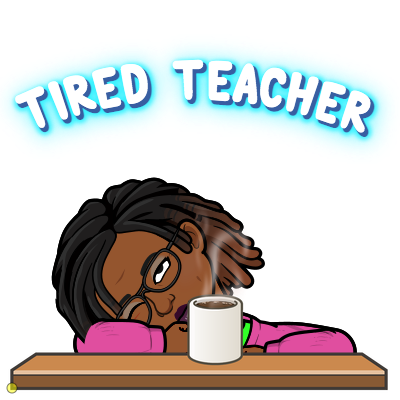There are so many outdated ideas and practices that we just do, because we always have. Why do kids have spelling test? If I can't spell it I can look it up using some sort of technology, but all across the country students continue to have spelling lists. When is the last time you had to complete a long division problem on paper using the standard algorithm? Chances are it was somewhere around 5th or 6th grade.
Students need to be taught explicitly how to use whatever the tool is being used. While most of our students are classified as digital natives, they don't always possess the prerequisite skills needed to successfully navigate whatever tool they are using. This isn't a new concept. Educators have always had to use baby steps to help students navigate new materials. Personally I am often surprised by the level of scaffolding that is needed when students they are using new technology. Yes they know how to use Instagram or TikTok. They can absolutely navigate Miro, but kids need rules. Everytime you introduce a new tool you will need to teach your student how to use it, what they are allowed to do, and what they should not do. This is problematic in a system that likes to tell teachers that long division can be mastered by fifth graders in a couple of weeks.
In order to affect real change educators need to be given the room to develop new curriculum standards and to implement new ideas about learning. This means that the "powers that be" must understand that the teacher is the professional. We need to give educators autonomy over what goes on in their classrooms. We need to trust them.As long as someone else is in charge of the timeline in your classroom, it will be for the educational community to make any significant shifts in pedagogy.


Great points TiredTeacher, I think with all the tools that are available now, we need to reassess the necessary skills that are being taught, and teachers are on the frontlines for making that happen. Honestly, it is bizarre to me how much teachers do for so many children in such little time. True superhero skills. I think the Educational System has been in long need of a revolution. I wonder what you're doing for you knowledge/skillshare assignment... you have excellent teacher insights!
ReplyDeleteI agree! We do need to trust our teachers. I feel like the district is always trying to roll something new out each year. It's just giving more stuff the teachers need to juggle instead of letting them do what they do best and know will work in the classroom.
ReplyDelete